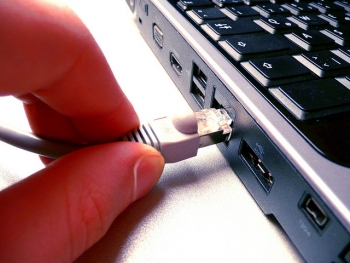Should You Choose a 4G Internet Data Contract This Time?

While 3G mobile has hogged the limelight for a good part of the last half-decade, last year the UK finally witnessed the long awaited grand entry of the next generation of mobile browsing. 4G coverage is now here, and, offering superfast speed and ultra-dynamic efficiency, this technology is going to revolutionise the mobile phone industry in the British Isles.
The era of 4G is upon us and having an enabled device with a whole new realm of possibilities seems like the must have of the year.
But how do you decide what service is best for you?
What are the intrinsic factors to consider when choosing?
Is it even the right time to consider switching and going for a 4G Internet data contract?
We will take a look at some of the most important points we must consider when choosing what network service to use in our new gadget.
Work
We must consider if the work we do requires top speed in terms of web browsing, email and streaming. Obviously, different types of work necessitate different data plans; for some work 4G is a must, for other 3G is sufficient.
For those who must conduct business on-the-go, a 3G service is good, but not sufficient. 4G services are a perfect match for people who have a lot of on the go data requirements, and need everything to happen now.
Network Coverage
Subscribing for a 4G Internet connection should be top priority only if the region in which you are based has decent 4G coverage. Although major service providers in the UK promise 98 per cent coverage come 2015, there is still some time before then and you could save yourself the cash by opting for the ever-present 3G network service.
One of the main frustrations exhibited by the great British public as the rollout began was the fact that they were in some cases paying for a service which was not yet available in their area. As you can imagine, Ofcom were unimpressed by this and quickly got involved. There seem to be fewer problems now, as EE and O2 both have a decent amount of coverage; although EE are still miles ahead.
A quick glance at the coverage checker on the website of whichever provider you are interested in will let you know whether you are able to get coverage in your area. This should be used as a guide only and many find it useful to ask friends or family if their service is acceptable, assuming they have 4G.
Remember that once you enter into a contract with a mobile phone company, you are in it for the long haul. If you sign the deal and then find out you are paying for 4G but have no access in your area, there really is not that much you can do. It will get to you eventually, but as for when... Who knows?
EE do plan to have practically the entire population covered by the end of 2014, so we wait with baited breath to see whether that materialises.
Mobile Carrier
When opting for a 4G connection, another decision we must factor in is choosing the right mobile operator. Mobile operators offer a variety of services, and our decisions should be based on the plans most suited to our needs. Different offers from different mobile operators are targeted at different types of people. For example, UK Telecommunication Giant EE offers a 4G plan known as 4GEE, which is specifically targeted at the media oriented section of the populace; those who love streaming content. O2 offers the cheapest and most affordable data plans with small data allowances. These deals are targeted at consumers with lower levels of data consumption.
Is Now the Right Time?
It really depends on where you live, how much you can afford, and how heavy your data requirements are. There is no doubt that you will get 4G at some point, but right now it may be just slightly too soon for many.
We are constantly hearing about problems with subscribers having no access, and struggling to get a signal. There will always be problems with the rollout of any kind of new technology, but it is how it is dealt with that really counts.
Many EE users felt short changed when they first got their 4G coverage when they found that it barely exceeded 3G speeds. Often it is good to wait a while. A genius once wrote ‘Tie yourself to the mast my friend and the storm will end’... While there is all this commotion about 4G, assess the pros and cons and do not get carried away with the tide of enthusiasm sweeping the country. When the problems have been ironed out, the coverage is wider and more consistent, and the price of contracts has come down; that is the right time to make your move.
Do you want to be Relevant?
We all want the latest iPhone or Android with 4G, but the truth is for £50 per month it is just not really that different to what we have got. If you are an average consumer; one who jumps on the Internet occasionally, reads Sky Sports News, sends a few tweets and blogs the odd picture on Instagram, 4G is not going to change your life.
In a few years, your passport, driving licence and bank cards will all be replaced by a smart device, with apps to take care of every aspect of your life. When this happens, 4G is going to affect all of us. It is going to be interesting to see how advanced things become and what impact it really has on society. Of course, we will probably be on 6G by the time any of this happens, but it will happen.
